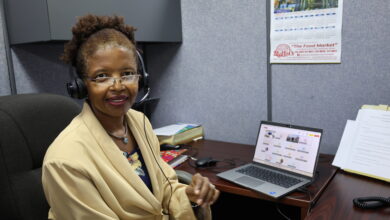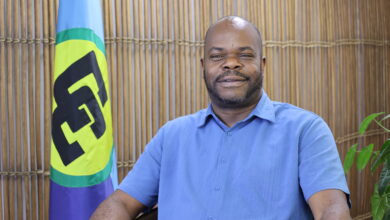(CARICOM Secretariat, Turkeyen, Greater Georgetown, Guyana) On this occasion of the Thirty-Eighth Observance of United Nations (UN) International Women’s Day, I again salute the women and girls of the Caribbean Community. Today provides us with an opportunity to reflect on the promises continually made to our women and girls focusing, in particular, on issues related to their personal security and the negative effects on their development. This year’s theme – Promise is a Promise – Time for action to end violence against women – causes us to confront and focus on some stark facts of which we can never be proud.
The promise to end violence against women has been made and reaffirmed in the Universal Declaration of Human Rights, which guarantees the right of everyone to life, liberty and security of person. Violence against women and girls is however, a global pandemic, with up to seven (7) in ten (10) women facing physical or sexual violence from an intimate partner during their lifetime. Further, it is estimated by the International Labour Organisation (ILO) that globally about 4.5 million, mainly women and girls, are forced into labour as victims of sexual exploitation. The roots of such violence are in gender inequality and can be prevented. It occurs in all countries, contexts and settings and is one of the most pervasive violations of human rights. This is in spite of the fact that 187 countries have ratified the Convention on the Elimination of all forms of Violence against Women (CEDAW).
The UN Commission on the Status of Women highlights the fact that particular groups of women and girls are exposed to an increased risk of violence, including those in rural areas and urban slums, and those who suffer multiple and intersecting forms of discrimination, such as women and girls with disabilities, women and girls living with HIV, widows, and indigenous and migrant women and girls.
According to the University of the West Indies (UWI) Institute of Gender Studies, domestic violence accounts for between thirty (30) to fifty (50) percent of all murders in many Caribbean countries. The cultural stereotype of an aggressive male is drilled early into Caribbean boys. A study of more than one thousand high school boys and girls in six Caribbean countries demonstrated that both boys and girls believe that aggression is a normal aspect of masculinity. The promise can only be delivered if our boys and girls are provided a more balanced model of masculinity.
The impacts of violence against women and girls can be intergenerational in that children who have witnessed or been subject to such violence are more likely to become victims or abusers later in life. Some studies have shown that boys who witness violence in their youth tend to abuse their partners. Violence against women destroys lives, homes, communities, costs billions in heath care and retards development.
UN Women has advanced a 16-step policy agenda designed to support countries in delivering on the promise. The agenda addresses issues related to justice, governance, access to services, capacity building for service providers, public awareness and social mobilization of young people, both male and female, as champions for change – all critical elements for stemming the tide of the pandemic.
We can reduce and prevent violence against women and girls by addressing the root causes such as gender inequality and discrimination, as well as the various risk factors which contribute to its occurrence. Promoting and protecting the human rights of all women and girls and strengthening implementation of laws, policies and programmes, are essential for preventing and responding to violence against women and girls.
There has been some progress in CARICOM, particularly with regard to services and responses, but implementation has been slow and uneven across countries. Comprehensive legal frameworks, enforcement mechanisms and multi-sectoral services must not only respond to and protect women and girls from violence but also send a clear message that such violence is not acceptable.
We need to do more to deliver on the promises; we must, in our homes and schools, nurture boys and girls who experience and practice peace, self respect, self control and mutual respect. Our homes, schools and societies must be havens of peace and love. I applaud the many Organizations in our Region which have recognized this and have been steadfast in their sense of mission; their advocacy and activism and their amazing and often sacrificial work to help women and girls and indeed all young persons, achieve their potential.
There is no doubt that in our Region, women from all walks of life have made great strides in several areas, often breaking through long held stereotypes in doing so. They have taken advantage of education and other development opportunities and have excelled in the fields of sport, business, politics, education, law, medicine, health and many others. We celebrate these women today but note with much sadness, that this rise could have been even more phenomenal had so many of our women not had their dreams thwarted through discrimination and also as a result of violence.
This year, in support of the One Billion Women Rising Initiative to strengthen awareness and action, women around the world stood up and declared “Enough”, rejecting all forms of violence against women and girls. One billion men must now rise up hand in hand with women to say “No more violence against women and girls”.
I end this statement by quoting from the 2012 Caribbean Human Development Report – Human Development and the Shift to better citizen Security:
‘It’s not culture; it’s crime: no form of gender-based violence should be tolerated.
THE TIME FOR ACTION IS NOW!
A Promise is a Promise.





